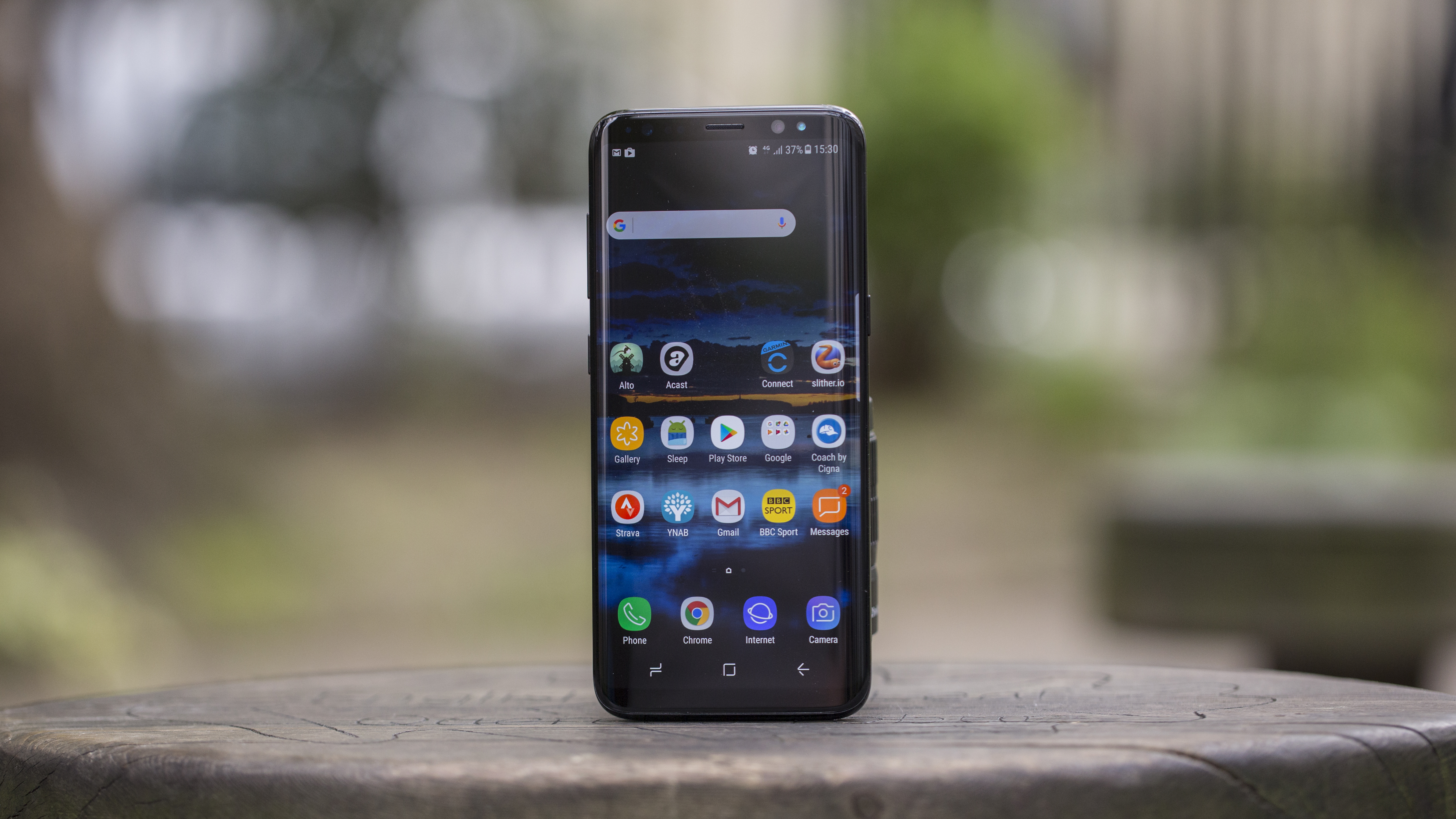Why you can trust TechRadar
The Samsung Galaxy S8 is still one of the better phones on the market, even though it may not be leading the line for the South Korean firm anymore.
Samsung did make you pay for the privilege at launch, but with the Samsung Galaxy S9 now replacing the S8 at the top of the tree, there are some great deals to be had for this still-excellent smartphone.
The drop in price doesn't make the re-jigging of the biometrics any better, but the Infinity Display continues to look fantastic.
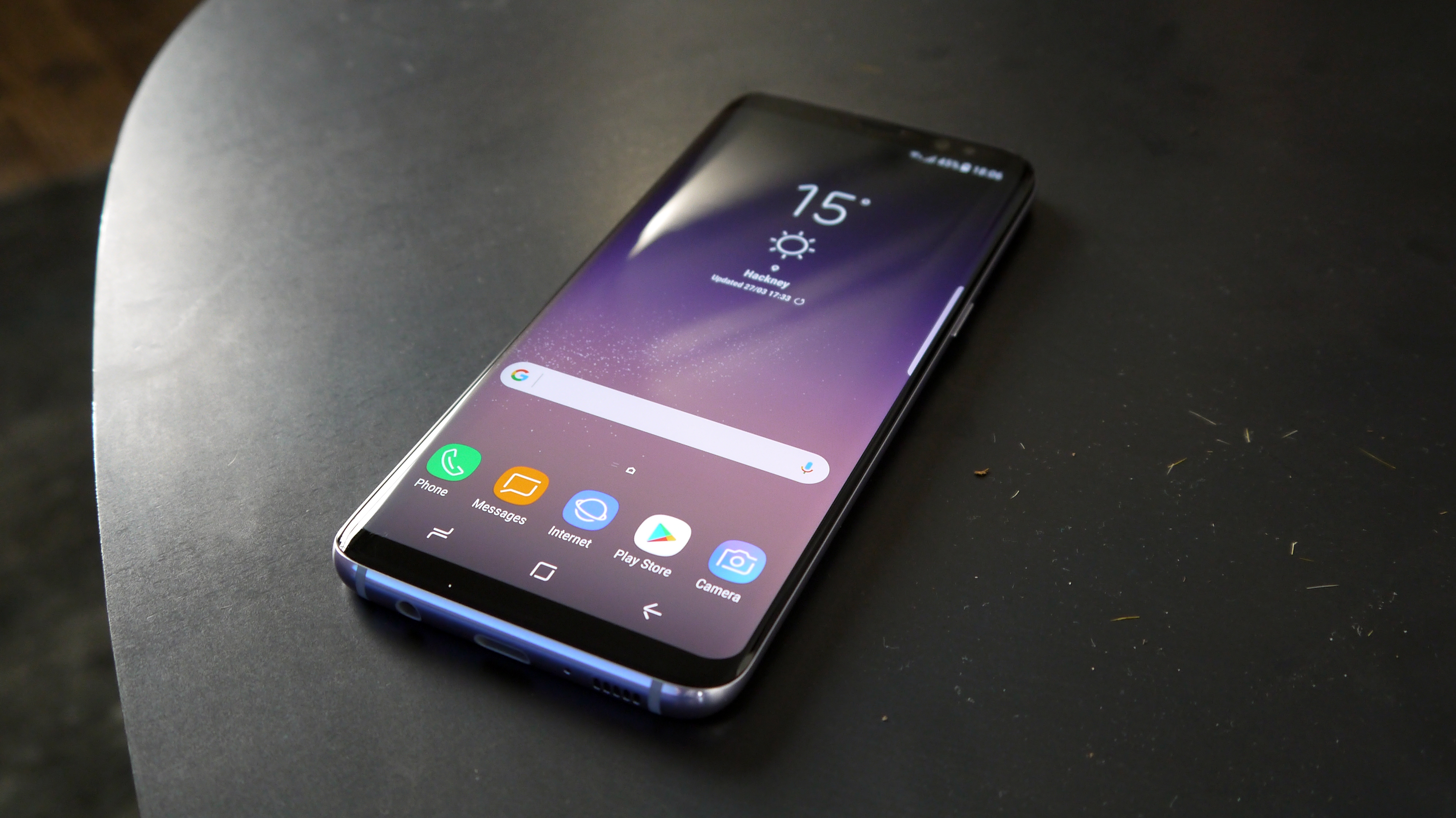
The fingerprint gamble hasn’t paid off – the methods of unlocking this phone securely aren’t abhorrent, but users will expect more from a phone at this price point, and to be irritated by it at all just isn’t good enough.
The iris scanner / fingerprint placement / facial recognition combination is one of the key things that stops the Samsung Galaxy S8 being a perfect handset.
Ultimately, people were already happy with the security on their phones: the fingerprint scanner was quick and easy to get into at the base of the phone, and now users will have to wait longer and sometimes jump through more hoops to just open their handset.
However, once you’re into the phone it’s hard to stay mad at Samsung for too long, because nearly everything else on offer here is brilliant.
No, it’s not got the best battery life in the world, but compared to the phones of 2014/15 that you’ll be upgrading from, it’s light years ahead, with the S8's clever battery management and power-saving tips getting you well through a day in normal use.

The camera remains strong, despite not being that much better than before – the key point is that it is improved, despite not gaining any megapixels, so there’s a real reason to choose this phone over the previous Galaxy S7 or S7 Edge.
But there’s one massive reason to buy this phone: the 5.8-inch display in a phone that’s just so much more compact than it should be. The Infinity Display is the first time we’ve seen such innovation on a global flagship device, and Samsung should be applauded for implementing it in a mainstream handset.
Yes, the overall user experience suffers as a result of the consequent shuffling of the biometrics – Samsung messed up there – but it’s almost worth it for the massive display.
Who's it for?
The Samsung Galaxy S8 is designed for those who just want a great phone and aren’t bothered about the cost. It’s a premium handset in every sense of the word – you’re paying more to get something really lovely.
If you’re a mobile movie buff, enjoy gaming on the go or just want something that can do more heavy lifting than nearly any other phone on the planet, then check out the S8 instantly… as long as you can afford it.
This is a pocketable, speedy and impressive phone in so many ways. If you just want a great phone and don’t care about the cost, it’s for you.

Should I buy it?
However, if you’re not desperate to own the Infinity Display on the Galaxy S8, then there’s not a lot of reason for you to buy this phone. The Samsung Galaxy S7 Edge is very similar in a lot of ways, and while it’s chunkier and less powerful, for most tasks it’s more than up to the job.
The camera is great, the screen is still tip-top, and things like high dynamic range are starting to offer real upgrades over previous iterations of Samsung's Galaxy line-up.
Samsung has thrown the best of every component it can into this phone, and it performs brilliantly as a result. Get over the high price and learn to live with the erratic iris scanner and you’re holding one of the best phones ever made.
If you’re thinking that the Samsung Galaxy S8's price is too high, or the biometric issues are too much hassle for you, don’t worry – we’ve picked out a few other phones that you might like instead:
Samsung Galaxy S9

If you want the latest and greatest S-branded smartphone from Samsung, the Galaxy S9 (and the even better Galaxy S9 Plus) is where you need to look - but the difference between this and the S8 isn't huge.
The S9 provides a better fingerprint placement, an enhanced camera and Samsung's new AR Emoji, but the phone itself is almost identical to its predecessor.
You get the same great Infinity Display and premium body, but there's also 2018 power under the hood making Android even more fluid and future-proofing the S9 further.
There's a significant price difference too, so you'll want to weigh up exactly what you want from your phone.
- Read our full Samsung Galaxy S9 review
Samsung Galaxy S8 Plus
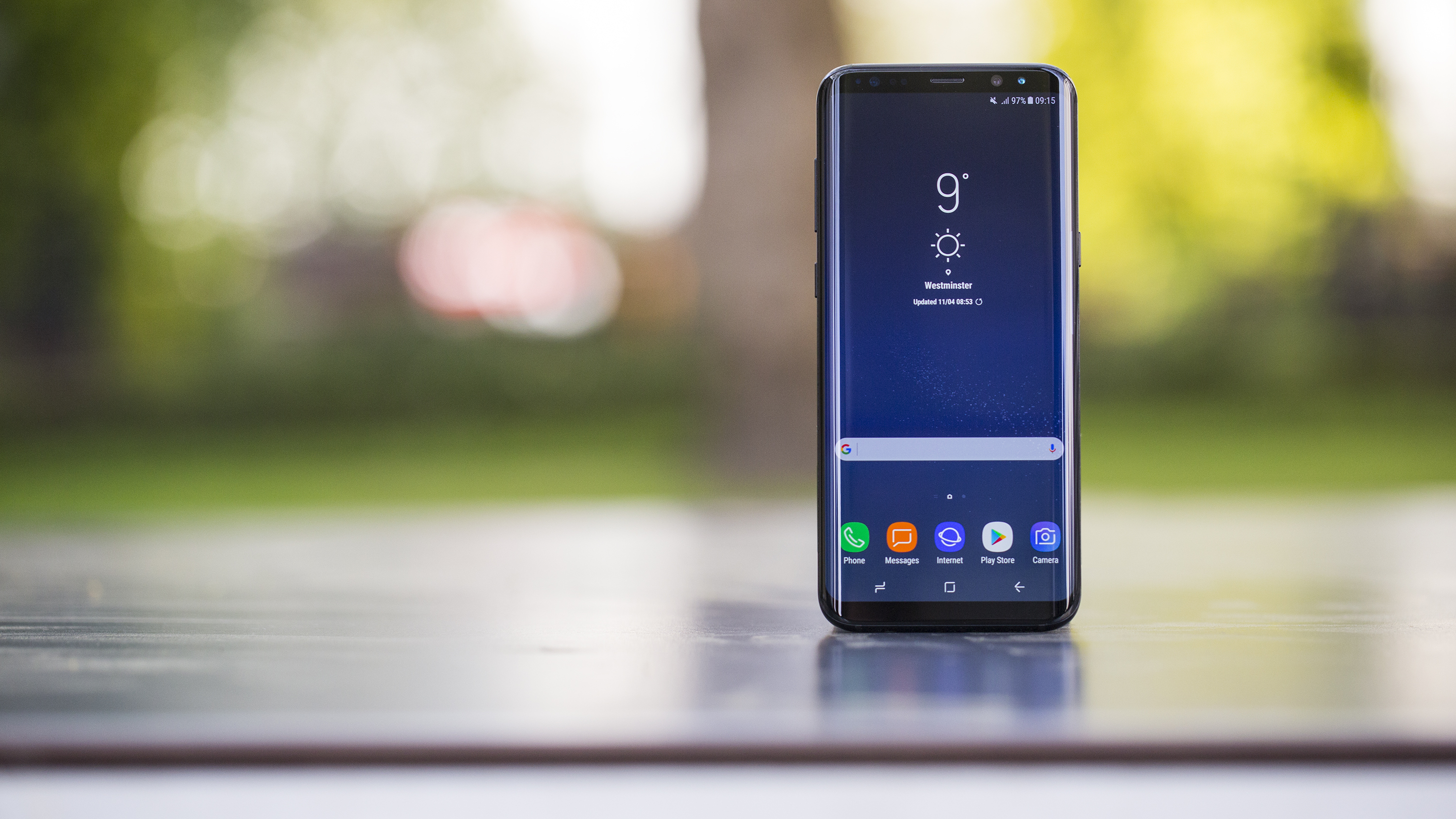
If you're after a bigger screen and slightly better battery life with the same gorgeous Infinity Display, super camera and power under the hood you'll want to opt for the Galaxy S8 Plus.
Assuming you can afford it. The Galaxy S8 is far from cheap, but its bigger brother is even more pricey - so you might want to check with your bank manager before opting for the Plus.
- Read our Samsung Galaxy S8 Plus review
iPhone X
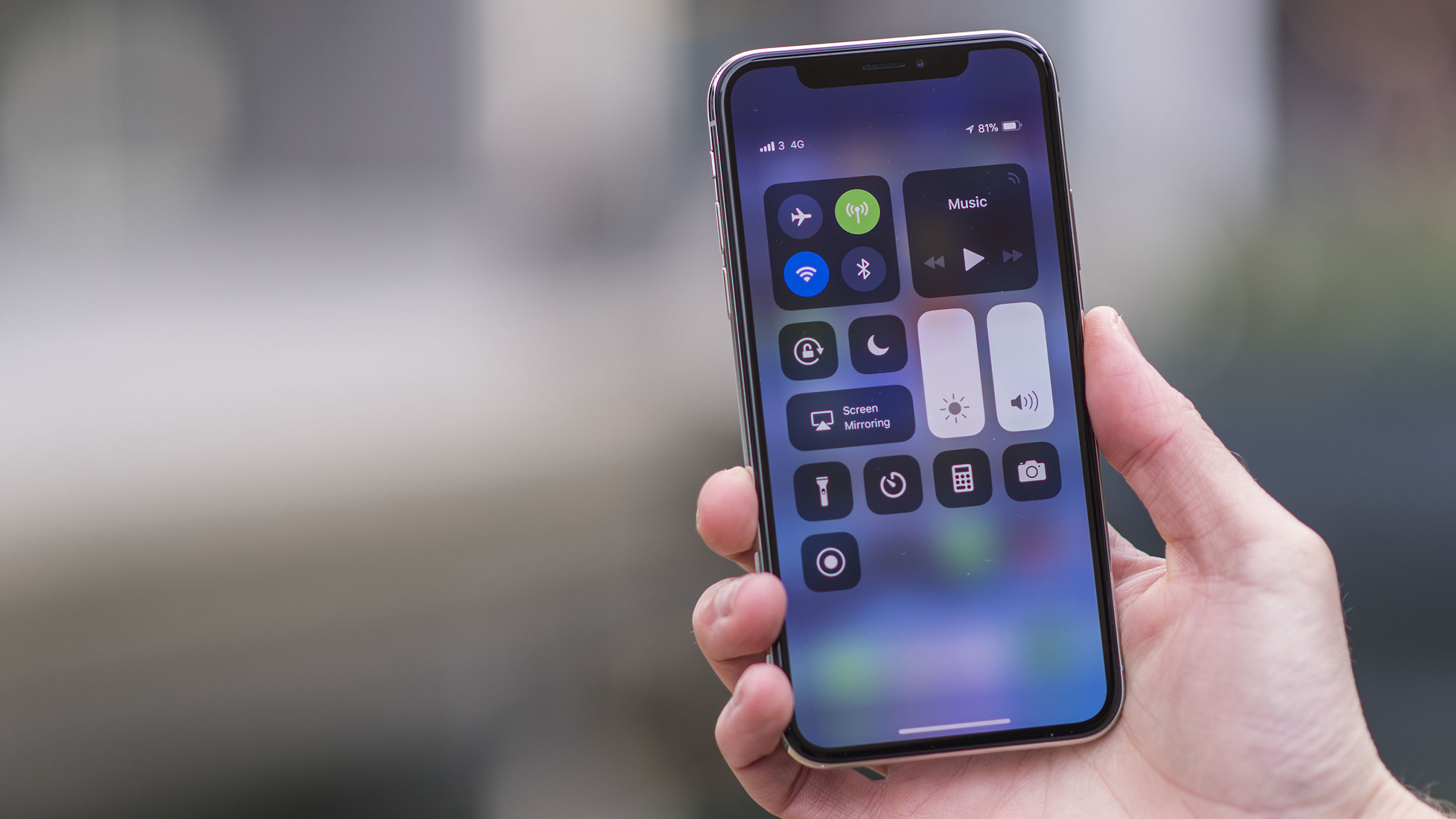
Here's another very expensive phone that may catch your eye when you're looking to upgrade your handset. The iPhone X is no longer the best phone from Apple (that honor goes to the iPhone XS and iPhone XS Max), but that means it's now cheaper than it once was, just like the Galaxy S8.
It also comes with a bezel-less screen and a Face ID unlock method that uses your likeness to unlock your phone. One which beats Samsung's Iris scanner included on the Galaxy S8.
- Read our full iPhone X review
Samsung Galaxy Note 9
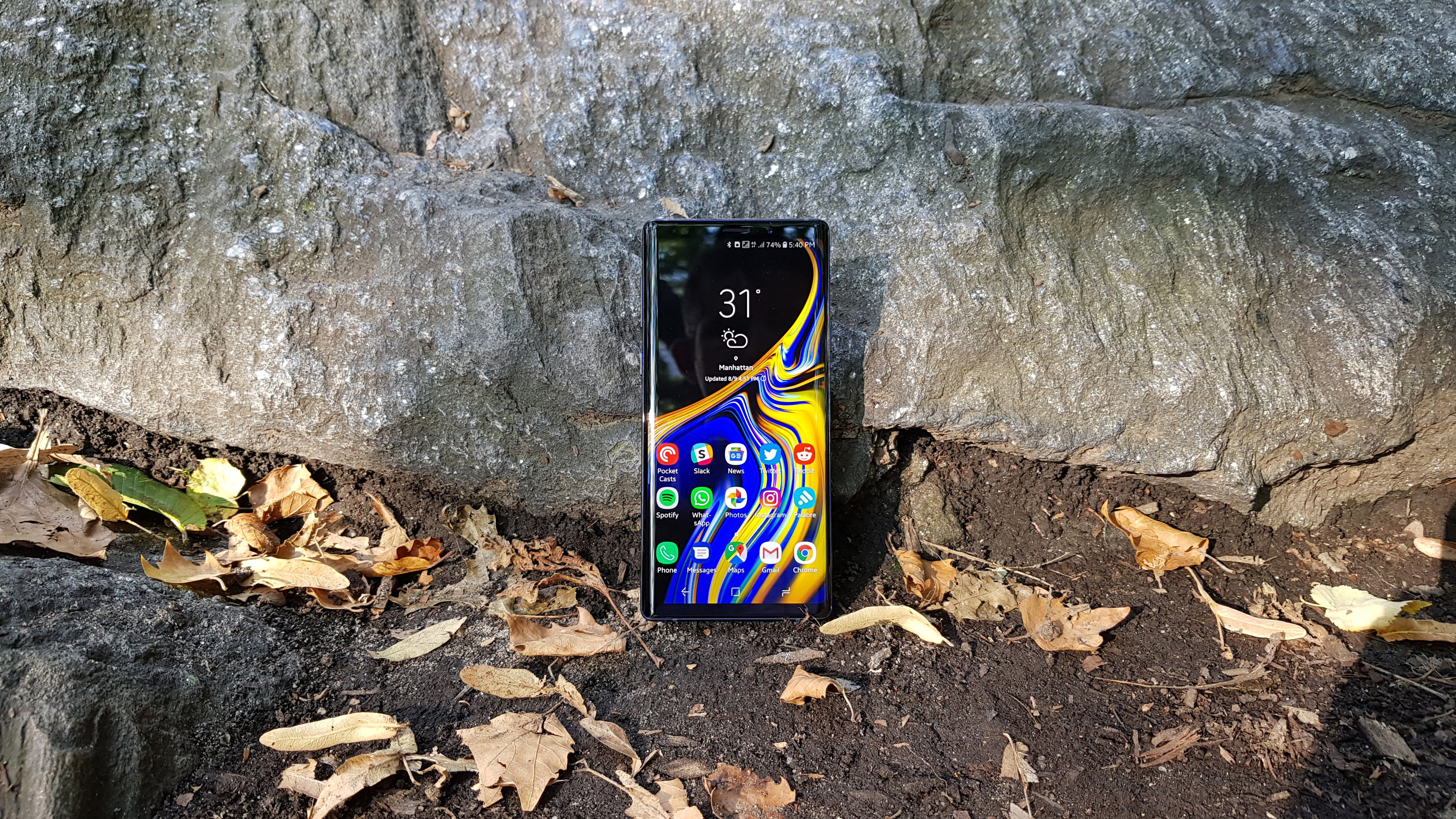
The Samsung Galaxy Note 9 is perhaps not a direct competitor to the Samsung Galaxy S8 - it's newer, larger, pricier and more productivity-focused, but if you just want the latest Samsung flagship, this is it.
Its 6.4-inch screen is even better than the display on the S8, it's got a dual-lens camera rather than a single-lens one, a larger battery and Samsung's S Pen stylus, making it ideal if you want to sketch or write by hand on your phone. It's the better handset, but it comes as a much higher price too.
- Read our full Samsung Galaxy Note 9 review
Samsung Galaxy S8: what businesses need to know
If you're thinking about the Samsung Galaxy S8 for business, it offers some useful features as Samsung seeks to extend its influence beyond the consumer market.
The use of DeX, a tiny docking station, would probably be the most compelling feature for Galaxy S8 business users; the ability to convert your smartphone phone into an Android-based computer complete with all the functionalities you'd expect from a rich desktop-like experience is something that system administrators will appreciate.
Said administrators would feel more comfortable about using the Galaxy S8 as BYOD (bring your own device) for business as Samsung's own defense-grade security platform, Knox, makes device management - and keeping work and private life separate - far easier.
For additional security you can also use the biometric fingerprint scanner or iris recognition, and with dual SIM functionality, IP68-rating for ruggedisation and bundled Microsoft Office apps, there's a lot to enjoy on the Galaxy S8 for the business user.
- Techradar Pro is your go-to resource for ruggedised smartphones, business smartphones, business phone deals and more.
First reviewed: April 2017

Gareth has been part of the consumer technology world in a career spanning three decades. He started life as a staff writer on the fledgling TechRadar, and has grew with the site (primarily as phones, tablets and wearables editor) until becoming Global Editor in Chief in 2018. Gareth has written over 4,000 articles for TechRadar, has contributed expert insight to a number of other publications, chaired panels on zeitgeist technologies, presented at the Gadget Show Live as well as representing the brand on TV and radio for multiple channels including Sky, BBC, ITV and Al-Jazeera. Passionate about fitness, he can bore anyone rigid about stress management, sleep tracking, heart rate variance as well as bemoaning something about the latest iPhone, Galaxy or OLED TV.
